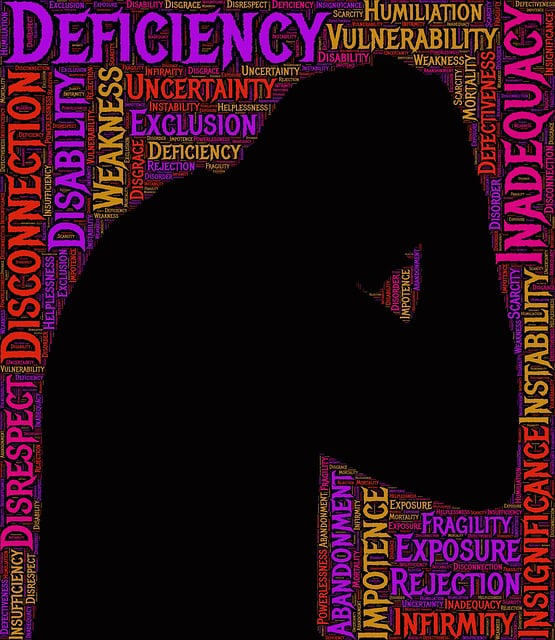In today's stressful environment, particularly affecting young adults, Lakewood Crisis Counseling Therapy (LCT) offers proactive coaching programs to combat mental health challenges. These initiatives provide self-awareness tools and personalized stress reduction methods, enhancing resilience and work-life balance. LCT combines crisis intervention with mindfulness meditation and public education campaigns to normalize mental health discussions. Their strategic planning includes structured programs, client feedback, and data analysis for tailored support, ensuring long-term wellness improvement through empowerment and self-awareness.
Mental wellness coaching programs are gaining prominence as essential tools in promoting holistic well-being. This article explores the development and impact of such initiatives, focusing on the unique approach of Lakewood Crisis Counseling Therapy. We delve into understanding the growing need for these programs and their potential to enhance mental health support. Furthermore, we provide insights on designing effective interventions and evaluating success, highlighting best practices for implementing wellness coaching initiatives.
- Understanding the Need for Mental Wellness Coaching Programs
- Designing Effective Lakewood Crisis Counseling Therapy Interventions
- Implementing and Evaluating the Success of Wellness Coaching Initiatives
Understanding the Need for Mental Wellness Coaching Programs

In today’s fast-paced and often stressful world, mental wellness is more important than ever before. The demand for effective strategies to promote and maintain psychological well-being has led to a growing interest in coaching programs that focus on this critical aspect of overall health. Mental wellness coaching offers a proactive approach to addressing the challenges of modern life, including work-related stress, burnout prevention, and self-care practices. By providing individuals with tools for Self-Awareness Exercises, these programs empower them to take charge of their mental health.
In light of rising anxiety and depression rates, particularly among young adults, initiatives like those offered by Lakewood Crisis Counseling Therapy are becoming increasingly vital. These coaching programs aim to equip people with stress reduction methods tailored to their unique needs, helping them navigate the complexities of daily life with greater resilience. Through personalized guidance, individuals can learn to recognize early warning signs of mental health issues and implement strategies for maintaining a healthy work-life balance, thereby fostering overall well-being and enhancing quality of life.
Designing Effective Lakewood Crisis Counseling Therapy Interventions

In designing effective Lakewood Crisis Counseling Therapy interventions, a holistic approach that combines crisis intervention guidance with tailored support strategies is essential. These programs should be developed to address the unique challenges faced by individuals in distress, focusing on both short-term relief and long-term mental wellness enhancement. Incorporating techniques such as mindfulness meditation can significantly aid in calming minds and fostering resilience, making it an integral component of any robust Lakewood Crisis Counseling Therapy program.
Public Awareness Campaigns Development plays a pivotal role in normalizing conversations around mental health crises. By educating the public on recognizing signs of distress and available resources, these campaigns empower individuals to offer timely support and seek professional assistance when needed. Integrating crisis intervention guidance into community outreach initiatives ensures that help is readily accessible, potentially saving lives and promoting better mental health outcomes for all.
Implementing and Evaluating the Success of Wellness Coaching Initiatives

Implementing and evaluating wellness coaching initiatives is a multifaceted process that requires careful planning and strategic execution. At Lakewood Crisis Counseling Therapy, we’ve seen firsthand how structured programs focused on emotional regulation and conflict resolution techniques can significantly enhance clients’ emotional well-being promotion techniques. A robust evaluation framework should measure both qualitative and quantitative outcomes to ensure the program’s effectiveness and adaptability.
Regular check-ins, client feedback mechanisms, and data analysis tools are essential components for assessing progress. By integrating these strategies, wellness coaching initiatives can be fine-tuned to better meet individual needs, ensuring that each participant receives tailored support for their unique emotional journey. This iterative approach not only improves outcomes but also fosters a sense of empowerment and self-awareness among those seeking mental wellness coaching.
Mental wellness coaching programs, such as those incorporating Lakewood Crisis Counseling Therapy techniques, are vital tools in enhancing individuals’ overall well-being. By designing effective interventions and implementing successful initiatives, we can navigate the complex landscape of mental health support. These programs have the potential to revolutionize care by fostering resilience and promoting positive change. As we continue to explore and evaluate these strategies, we move closer to creating a more supportive and accessible environment for those seeking mental wellness.












